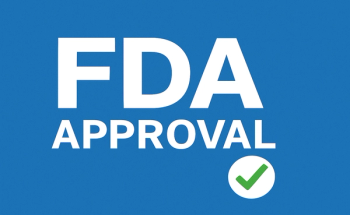
Study Summary: Links Among Depression, Anxiety, and Headache Frequency in Patients With Migraine
Background
Headache disorders, including migraine, are frequently associated with emotional disturbances and impaired quality of life, and they are therefore considered a major public health concern. The burden of several well-recognized disorders comorbid with migraine, including anxiety, depression, and insomnia, has become increasingly evident. Because the link between migraines and mood or anxiety disorders has not yet been fully elucidated, further studies are needed to better characterize the nature and direction of the relationship.1
Chu and colleagues set out to investigate the relationship among depression, anxiety, and frequency of headaches in patients with migraine. In particular, investigators aimed to determine whether migraine frequency might be correlated to the severity of anxiety or depression, while controlling for confounders such as smoking status, and alcohol and coffee intake.1
Study Design
The researchers performed a cross-sectional study of patients with migraine in Taiwan who received treatment at an outpatient headache clinic between June 2014 and May 2016. The study included patients who had a clinical history of migraine according to the criteria of the International Headache Society, either with or without aura, as well as a control group of volunteers who had no history of headache disorders.1
Chu and colleagues collected patients’ demographic and clinical data, including information about headache frequency, presence of aura, educational history, employment status, smoking status, and history of alcohol and coffee consumption. They categorized headache frequency into 4 groups: low, with headaches 1 to 4 days each month; medium, with headaches 5 to 8 days each month; high, with headaches 9 to 14 days each month; or chronic, with headaches occurring more than 14 days each month.1
The researchers used several questionnaires to collect information about patients’ sleep characteristics, and about their depression and anxiety symptoms. Beck’s Depression Inventory (BDI) and Hospital Anxiety and Depression Subscales (HADS) were used to classify symptoms of depression and anxiety. The Pittsburgh Sleep Quality Index (PSQI) was used to evaluate patients’ sleep quality. Statistical analyses performed using these data aimed to assess relationships among the different variables.1
Results
The study included a total of 588 patients: 409 patients with migraine and 179 volunteers with no history of migraine. Of the 409 patients with migraine, 129 (31.5%) had experienced migraine with aura.1
The researchers noted that greater migraine frequency correlated with higher scores on the BDI, HADS, and PSQI (P <.001 for all), indicating that patients with frequent migraines more often experienced anxiety, depression, and sleep disturbances compared with those with infrequent migraine.1
Patients with a history of chronic migraine had the highest BDI scores (mean, 13.2; SD, 8.5). Among the other study groups, mean BDI score was also correlated with headache frequency. Mean BDI (SD) was 12.1 (8.5) in those with a high frequency of headaches, 10.6 (8.0) in those with a medium headache frequency, and 12.1 (8.5) for those with a low headache frequency (
Similar to the BDI scores, HADS scores for anxiety and depression were also highest in patients who had chronic migraine. Among the other study groups, HADS scores were highest in patients with a high frequency of migraine and lowest in volunteers without migraine (
After controlling for numerous potentially confounding factors, including gender, age, body mass index, employment, education, smoking, and alcohol and coffee consumption, investigators determined that severity of depression and anxiety was correlated with migraine frequency in patients with migraines both with and without aura.
According to the researchers, poor sleep quality was associated with greater migraine frequency. In addition, poor sleep quality was also determined to be an independent predictor of more severe depression and anxiety symptoms. PSQI scores were highest in patients with chronic (mean, 9.8; SD, 4.2) and high-frequency (mean, 9.9; SD, 3.5) migraine (
Conclusions
Chu and colleagues noted that their findings in this study confirm those of prior studies, highlighting links among anxiety, depression, and migraine frequency. Based on previous research, the investigators hypothesized that emotional disturbance and headache frequency may interact through a common stress response pathway. For example, some research suggests that emotional responses have the capability to change pain perception through certain signaling mechanisms. Based on their findings, Chu and colleagues suggested that use of preventive migraine medications could lower the risk of anxiety and depression symptoms in patients who experience migraine.1
Chu and colleagues acknowledged several limitations of their study. The cross-sectional design prevents establishment of a causal relationship among anxiety, depression, and migraine frequency. Also, the patients were all from a single hospital, thus limiting the generalizability of the findings to a wider patient population. Although they considered their overall sample size adequate, the investigators acknowledged that including a larger population of patients with chronic migraine could have strengthened their data. Finally, researchers suggested that the inclusion of patients already taking preventive migraine medications, which may also be prescribed for patients with anxiety and depression, could have confounded their results.1
Reference
1. Chu HT, Liang CS, Lee JT, et al. Associations between depression/anxiety and headache frequency in migraineurs: a cross-sectional study. Headache. 2018;58(3):407-415. doi: 10.1111/head.13215.
Newsletter
Stay ahead of policy, cost, and value—subscribe to AJMC for expert insights at the intersection of clinical care and health economics.








